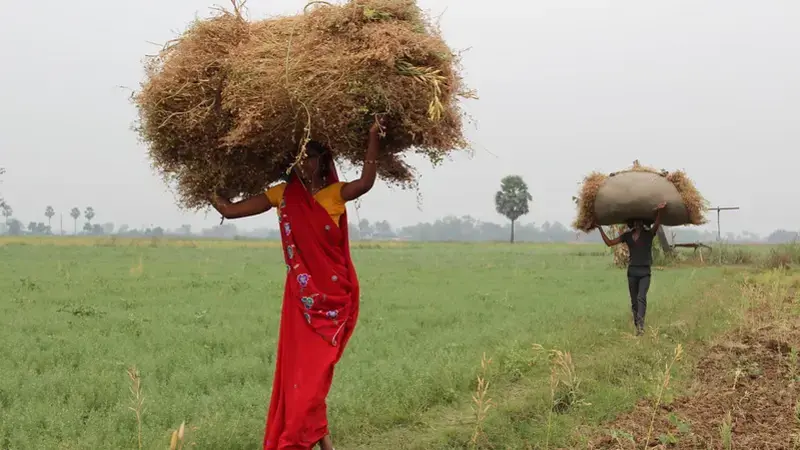ICARDA’s Agroecological Innovations Featured in “Les dossiers d’Agropolis International”

The recently published “Agroecological transformation for sustainable food systems” dossier showcases ICARDA’s leading dryland agroecological expertise
Published ahead of the New York UN World Food Systems Summit which took place on September 23, the dossier focuses on the partnership between France and CGIAR, and is the latest edition of ‘Les dossiers d’Agropolis International.’
Of 500 international scientists who contributed, abstracts by 17 ICARDA scientists are featured, highlighting the positive impacts of proven agroecological approaches across the drylands of Central, South and West Asia, North and East Africa - where ICARDA works.
ICARDA's featured climate-smart innovations include intercropping cereal and legumes, efforts to reintroduce pollinators to smallholder farmers’ lands, promoting drought resilient crops such as cactus pear, and multi-purpose barley for food, forage, and feed, as well as approaches such as relay-cropping, and planting fast-maturing legumes within rice fallow windows to boost farmers’ income, nutrition, and soil health between harvests.
GeoAgro,ICARDA's digital augmentation system which provides essential entry points for scaling site-specific advisory services and information is also featured.
Dr. Vinay Nangia, ICARDA’s Research Team Leader in Soils, Water and Agronomy, contributed two abstracts to the dossier : one on diversified cropping systems, and one on intercropping fruit trees and field crops in water-scarce conditions.'
He explains why it matters for ICARDA’s agroecological expertise to be up, front, and center. “Because ICARDA operates in increasingly water-scarce regions with degraded soils, agroecology offers viable solutions to make family farmers’ livelihoods more resilient and environmentally sustainable,” he said.
According to him, ICARDA’s multidisciplinary approach gives the organization an extra edge. “We work on improved seeds, livestock, agronomy and water, and develop integrated solutions, which help us put together agroecological packages that will ensure the future of sustainable farming in the region,” he adds.
The urgency of agroecological transformation of agrifood systems, linked to the Sustainable Development Goals (SDGs), is one of the game changers that was discussed at the 2021 UN World Food System Summit.
As the booklet clearly illustrates, there is a wealth of knowledge and proven solutions that exist to facilitate the transition from conventional agricultural models based on monocropping, to agroecological systems benefitting the planet, farmers, and the rest of us.
